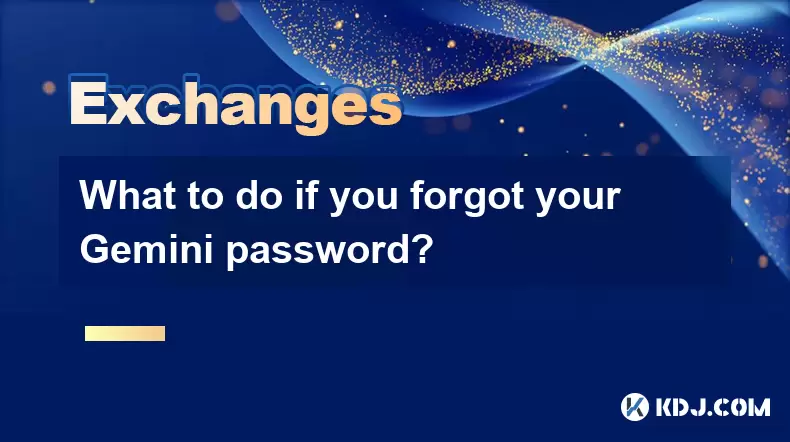-
 Bitcoin
Bitcoin $115000
0.12% -
 Ethereum
Ethereum $3701
4.50% -
 XRP
XRP $3.081
2.99% -
 Tether USDt
Tether USDt $0.0000
-0.01% -
 BNB
BNB $767.9
1.45% -
 Solana
Solana $169.5
3.13% -
 USDC
USDC $0.9999
0.01% -
 Dogecoin
Dogecoin $0.2106
4.30% -
 TRON
TRON $0.3334
1.62% -
 Cardano
Cardano $0.7564
2.54% -
 Stellar
Stellar $0.4165
0.76% -
 Hyperliquid
Hyperliquid $38.75
0.25% -
 Sui
Sui $3.593
3.00% -
 Chainlink
Chainlink $17.08
3.59% -
 Bitcoin Cash
Bitcoin Cash $573.6
4.35% -
 Hedera
Hedera $0.2508
-0.84% -
 Avalanche
Avalanche $23.07
6.46% -
 Ethena USDe
Ethena USDe $1.001
-0.02% -
 Litecoin
Litecoin $120.8
8.17% -
 UNUS SED LEO
UNUS SED LEO $8.943
-0.32% -
 Toncoin
Toncoin $3.400
-5.60% -
 Shiba Inu
Shiba Inu $0.00001255
1.54% -
 Uniswap
Uniswap $9.908
6.32% -
 Polkadot
Polkadot $3.718
2.10% -
 Monero
Monero $303.0
-0.74% -
 Dai
Dai $0.9999
-0.02% -
 Bitget Token
Bitget Token $4.392
0.91% -
 Cronos
Cronos $0.1403
6.31% -
 Pepe
Pepe $0.00001076
1.13% -
 Aave
Aave $267.2
1.80%
What situations does Coinbase's asset insurance cover? Can I claim compensation if my private key is lost?
Coinbase insures custodial accounts against institutional-level theft but does not cover lost private keys or user errors.
Jun 15, 2025 at 01:49 pm

Overview of Coinbase's Asset Insurance Coverage
Coinbase, one of the largest and most trusted cryptocurrency exchanges in the world, provides asset insurance for certain types of digital assets held on its platform. This insurance is primarily designed to protect users against unauthorized access or theft from Coinbase’s hot wallets, which are connected to the internet and used for daily transactions. It does not cover all possible scenarios, such as user error or self-custody mishaps.
The insurance policy is underwritten by third-party insurers and covers losses resulting from hacks, breaches, or internal fraud that occur within Coinbase's systems. Importantly, this coverage only applies to funds stored in custodial accounts managed directly by Coinbase, not those held in external wallets or cold storage solutions controlled by the user.
Asset insurance on Coinbase does not extend to personal devices, private keys, or recovery phrases that are lost or compromised due to user negligence.
What Is Covered Under Coinbase's Insurance Policy?
Under Coinbase's insurance framework, several specific scenarios are covered:
- Hacks or cyberattacks on Coinbase's infrastructure that result in the loss of customer funds.
- Internal fraud or malfeasance by Coinbase employees that leads to asset loss.
- Third-party breaches involving Coinbase partners where sensitive data or funds are stolen.
These situations are investigated thoroughly before any payout is made. The insurance fund acts as a safeguard to ensure that customers do not bear the financial burden if Coinbase's systems fail to protect their holdings.
It is important to note that the insurance does not cover losses incurred through phishing, malware, or unauthorized access due to weak account security practices on the part of the user.
Private Key Loss: Does Coinbase Provide Compensation?
If you lose your private key or recovery phrase, especially when using Coinbase Wallet or other non-custodial services, you are not eligible for compensation under Coinbase's insurance policy. This is because, in non-custodial setups, the user is solely responsible for securing their own cryptographic keys.
Coinbase Wallet is a self-custody wallet, meaning it gives users full control over their private keys. If you lose access to your wallet because you misplaced your recovery phrase, there is no way to recover your funds through Coinbase support or insurance.
Recovery phrases cannot be retrieved or reset by Coinbase, even with identity verification or account confirmation.
Steps to Prevent Private Key Loss and Secure Your Assets
To avoid losing access to your crypto assets, follow these essential steps:
- Store your recovery phrase in a secure, offline environment — such as a fireproof safe or encrypted hardware device.
- Avoid taking screenshots or saving your recovery phrase digitally unless it's stored in an air-gapped system.
- Consider using multi-signature wallets that require multiple approvals to execute transactions, adding another layer of protection.
- Enable two-factor authentication (2FA) on your Coinbase account to prevent unauthorized logins.
- Regularly review your login activity and device authorizations via your Coinbase settings.
Failure to follow these best practices may result in irreversible loss of access to your funds without any possibility of recovery.
Differences Between Custodial and Non-Custodial Services on Coinbase
Understanding the distinction between custodial and non-custodial services is crucial when evaluating insurance eligibility:
Custodial Accounts (e.g., Coinbase Exchange):
- Funds are stored in wallets managed by Coinbase.
- Covered under the insurance policy for institutional-level theft.
- Users do not have direct access to private keys.
Non-Custodial Accounts (e.g., Coinbase Wallet):
- Users hold and manage their own private keys.
- No insurance coverage for lost keys or user errors.
- Full control resides with the individual.
Only custodial services benefit from Coinbase's institutional-grade insurance protections.
Frequently Asked Questions
Q: Can I get help from Coinbase support if I sent crypto to the wrong address?
A: Unfortunately, no. Once a transaction is confirmed on the blockchain, it cannot be reversed. Coinbase has no ability to retrieve funds once they’ve been sent.
Q: Is my Coinbase account insured if I use two-factor authentication?
A: Using 2FA enhances account security but does not expand the scope of the insurance policy. The policy still only covers institutional-level breaches.
Q: What happens if Coinbase gets hacked? Will I get my funds back?
A: In the unlikely event of a breach affecting custodial accounts, Coinbase will use its insurance fund to reimburse affected users. However, this does not apply to non-custodial wallets or personal devices.
Q: Can I insure my crypto holdings beyond what Coinbase offers?
A: Yes, some third-party insurers offer policies for large crypto holders, though they typically come at a premium and require detailed risk assessments.
Disclaimer:info@kdj.com
The information provided is not trading advice. kdj.com does not assume any responsibility for any investments made based on the information provided in this article. Cryptocurrencies are highly volatile and it is highly recommended that you invest with caution after thorough research!
If you believe that the content used on this website infringes your copyright, please contact us immediately (info@kdj.com) and we will delete it promptly.
- Bitcoin, Fed Rate Cut, and Crypto Stocks: A New Yorker's Take
- 2025-08-05 14:50:12
- Police, Cryptocurrency, Bitcoin Windfall: Unexpected Gains and Cautionary Tales
- 2025-08-05 15:30:12
- MAGACOIN: The Next Shiba Inu ROI? A Crypto Presale Deep Dive
- 2025-08-05 15:30:12
- Bitcoin, Kiyosaki, and the August Curse: Will History Repeat?
- 2025-08-05 14:50:12
- Crypto Airdrops: Your August 2025 Guide to Free Tokens & Opportunities
- 2025-08-05 13:45:13
- Luxury Dining Reimagined: St. Regis Singapore & Marriott's Culinary Celebration
- 2025-08-05 13:45:13
Related knowledge

How to set and manage alerts on the Gemini app?
Aug 03,2025 at 11:00am
Understanding the Gemini App Alert SystemThe Gemini app offers users a powerful way to stay informed about their cryptocurrency holdings, price moveme...

How to use the Gemini mobile app to trade on the go?
Aug 04,2025 at 09:14am
Setting Up the Gemini Mobile AppTo begin trading on the go using the Gemini mobile app, the first step is installing the application on your smartphon...

How to set up a corporate account on Gemini?
Aug 05,2025 at 03:29pm
Understanding Gemini Corporate AccountsGemini is a regulated cryptocurrency exchange platform that supports both individual and corporate account crea...

What to do if you forgot your Gemini password?
Aug 04,2025 at 03:42am
Understanding the Role of Passwords in Gemini AccountsWhen using Gemini, a regulated cryptocurrency exchange platform, your password serves as one of ...

What are the websocket feeds available from the Gemini API?
Aug 03,2025 at 07:43pm
Overview of Gemini WebSocket FeedsThe Gemini API provides real-time market data through its WebSocket feeds, enabling developers and traders to receiv...

How to get started with the Gemini API?
Aug 05,2025 at 12:35pm
Understanding the Gemini API and Its PurposeThe Gemini API is a powerful interface provided by the cryptocurrency exchange Gemini, enabling developers...

How to set and manage alerts on the Gemini app?
Aug 03,2025 at 11:00am
Understanding the Gemini App Alert SystemThe Gemini app offers users a powerful way to stay informed about their cryptocurrency holdings, price moveme...

How to use the Gemini mobile app to trade on the go?
Aug 04,2025 at 09:14am
Setting Up the Gemini Mobile AppTo begin trading on the go using the Gemini mobile app, the first step is installing the application on your smartphon...

How to set up a corporate account on Gemini?
Aug 05,2025 at 03:29pm
Understanding Gemini Corporate AccountsGemini is a regulated cryptocurrency exchange platform that supports both individual and corporate account crea...

What to do if you forgot your Gemini password?
Aug 04,2025 at 03:42am
Understanding the Role of Passwords in Gemini AccountsWhen using Gemini, a regulated cryptocurrency exchange platform, your password serves as one of ...

What are the websocket feeds available from the Gemini API?
Aug 03,2025 at 07:43pm
Overview of Gemini WebSocket FeedsThe Gemini API provides real-time market data through its WebSocket feeds, enabling developers and traders to receiv...

How to get started with the Gemini API?
Aug 05,2025 at 12:35pm
Understanding the Gemini API and Its PurposeThe Gemini API is a powerful interface provided by the cryptocurrency exchange Gemini, enabling developers...
See all articles

























































































